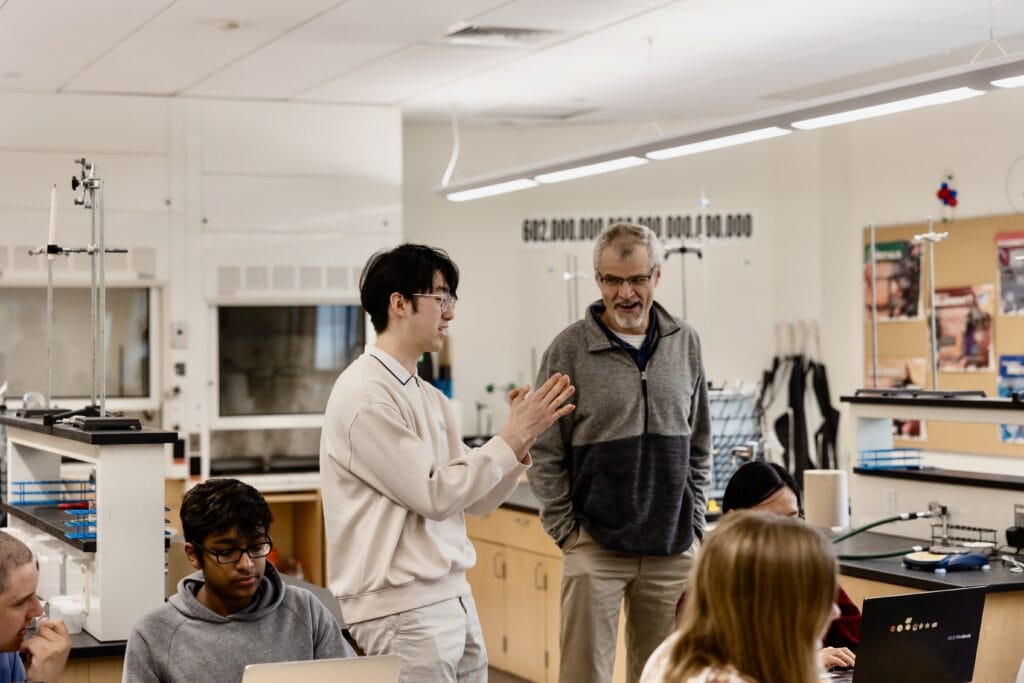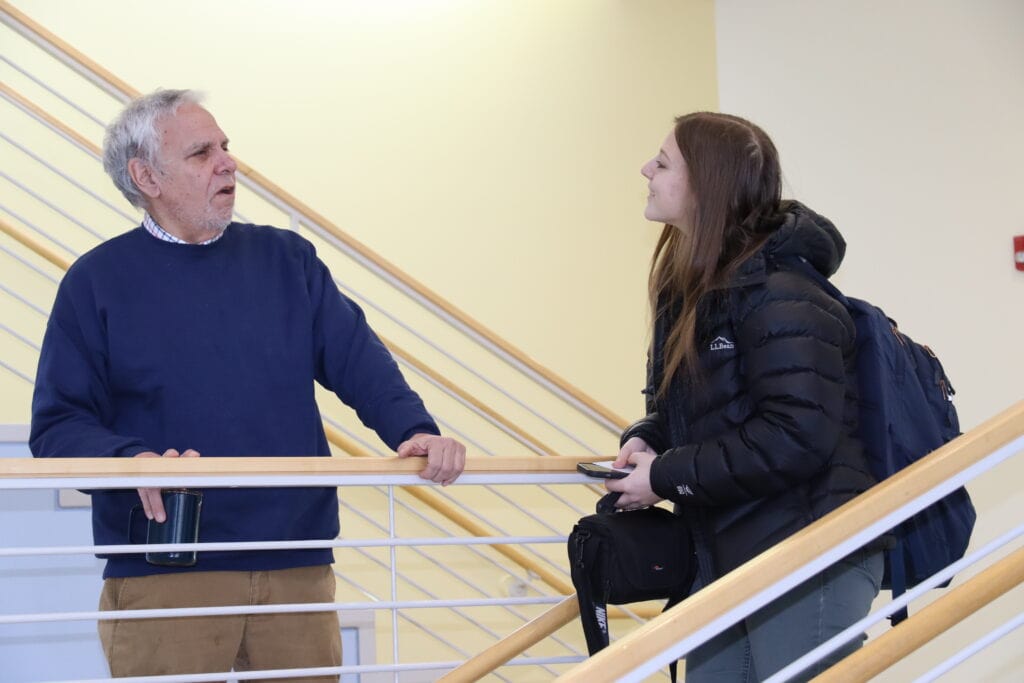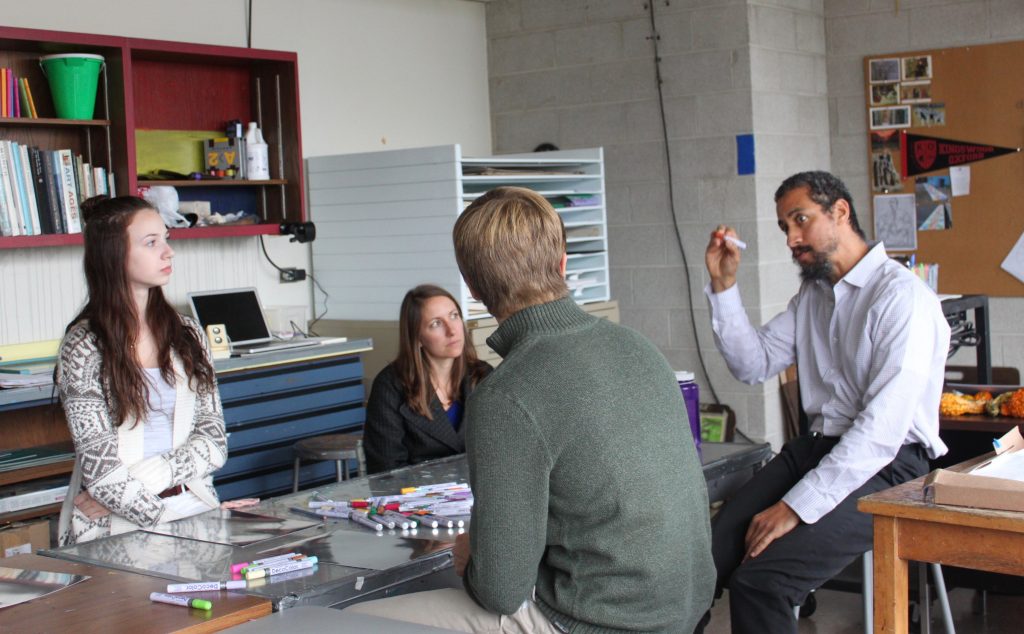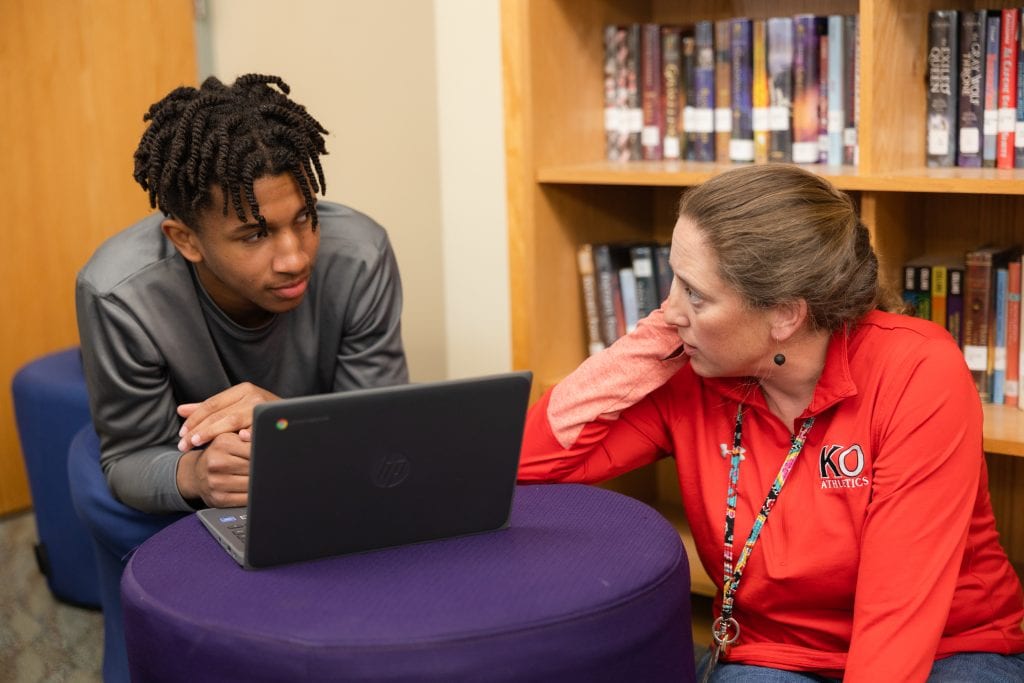The Advising Program
Relationships grounded in trust
We See You
For Who You Are
and All That You Can Become.
Finding the right balance between challenge and support is an ongoing process at KO. As students grow, their teachers are right there with them, always knowing just what’s possible and setting each student up for success.
Every student is assigned their own advisor—establishing meaningful one-on-one relationships grounded in trust. Each advisor fills pivotal roles of advocate, cheerleader, guide, motivator, and confidante. Students always have someone to go to—to help make a study plan, choose courses, understand a complicated friend dynamic, or process events in the news.
Additionally, regularly scheduled advisory group meetings create new friendships and a powerful peer cohort. Three times a week, these groups of 6–9 students gather to touch base, plan activities, discuss shared experiences and unpack developmentally appropriate issues.
Program Highlights
-
One-to-one advisor-student partnerships create a safe space to grow.
-
Advisors liaise with parents and guardians to coordinate individualized school communications.
-
Students take responsibility for their own learning when they participate in twice-a-year conferences to discuss student progress and set goals.


“My advisor always listens to me and understands my needs. She teaches me how to think bigger and encourages me to take on activities and subjects that make sense for me. She’s taught me the importance of believing in myself.”
—Avery, junior
Middle School (Grades 6-8) Overarching Advising Goals
Self-awareness – As soon students start Upper Prep (grade 6), they begin to understand what it means to learn effectively, what constitutes good work, and what their own strengths and weaknesses are concerning learning. By the time they complete Form 2 (grade 8), Kingswood Oxford students know themselves as learners and have developed strategies for capitalizing on their strengths and overcoming their challenges.
Making connections – Middle School students must become familiar with a new school community. They need to form relationships with their peers, teachers, and advisors. The social landscape requires navigation and support, and as they progress, they are asked to lead the younger students in positive ways.
Self-advocacy – By Form 2, students are expected to be able to learn when and how to ask for help. Although this is a lifelong skill that is reinforced in the Upper School, Middle School students begin by learning to talk with adults, by communicating appropriately (through e-mail or in person), and by being honest with their feelings.
Time management – The schedule of the Middle School encourages students to manage their time by: completing their homework on the night it is assigned, using study hall time effectively, and adjusting to more homework by planning ahead and prioritizing. While the ultimate goal is for students to master time management independently, their progress toward the goal is thoughtful and deliberate. Advisors aid and support students as they grow to take ownership of their daily schedules.
Organization – Beginning with learning to keep a locker and use a homework planner, advisors work with Middle School students to devise an organizational plan that works for them. This includes having what is needed for class and keeping track of personal belongings. The use of technology (e-mail, blogs, wikis, and teacher Web pages) is added to the mix as students get older.
Upper School (Grades 9-12) Overarching Advising Goals
At the Upper School, students remain with the same advisor for Forms 3 and 4, then change to a new advisor for Forms 5 and 6.
Self-awareness – Form 3 (grade 9) focuses on finding one’s place within the school community. As freshmen begin to recognize their academic strengths, they set goals for further improvement as they see themselves as members of a team, participants in a class, and citizens of a community. Advisors and students continue conversations about strengths and weaknesses throughout the Upper School.
Questions that arise include:
-
What subjects come easiest to me?
-
What subjects are more difficult?
-
How can I use my strengths in one area to help me with my weaknesses in another?
-
How can I use my strengths as I present myself to colleges and future employers?
Making connections – From Forms 3-6 (grade 12), students work to form meaningful relationships with their peers, teachers, and coaches. As they progress through the Upper School, older students mentor and lead younger ones, both formally and informally. Students are encouraged to join clubs, make friends with upperclassmen or underclassmen, and become a team or club leader.
Self-advocacy – The primary goal of the Upper School experience is for students to learn to identify when they need help and to ask for it appropriately. Students are asked to take care of themselves while managing all aspects of their school life; to do so effectively, there are times when students need to ask for help.
Ways that we encourage students to self-advocate include:
-
Scheduling extra help sessions
-
Discussing and moving deadlines
-
Talking about their problems with adults they trust
Time management – In Form 3, students have study halls during free periods, providing them crucial time management support. As they progress, students are given the freedom to manage their time independently, knowing that adults are available to provide structure when needed. By the time students graduate from Kingswood Oxford, they know how to plan and manage deadlines without being overloaded.
Organization – Organizational requirements increase with each grade. In Form 3, students are asked to keep track of daily assignments, check e-mail regularly, and develop an effective personal system of organization. In Form 4, longer assignments are more prevalent, and students are asked to plan weeks, or even months, ahead. Juniors are expected to take responsibility for all deadlines and fine-tune their organizational strategies to account for an increased academic and extracurricular load. Seniors take on leadership roles, which add another layer of personal responsibility and organizational demands.




